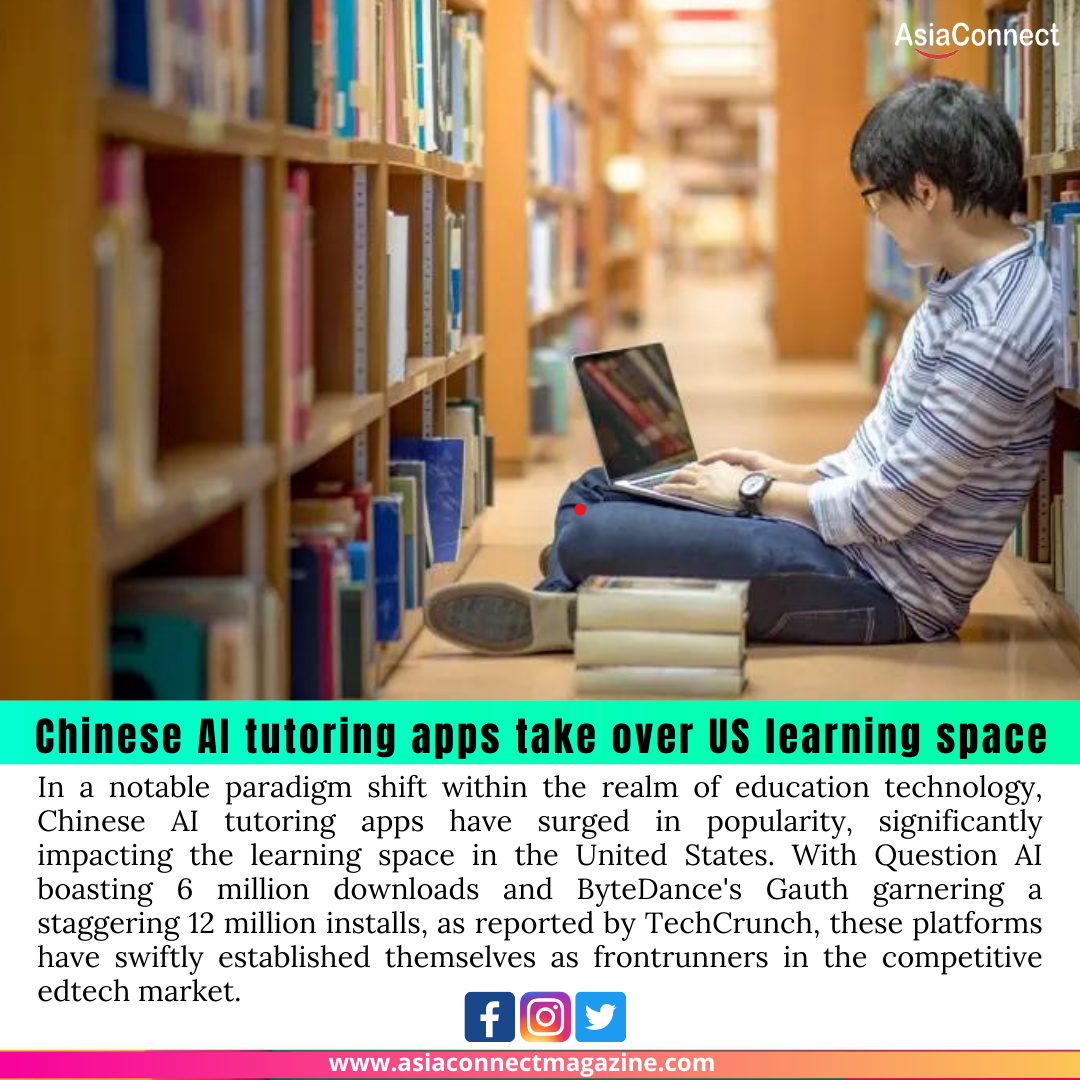In a notable paradigm shift within the realm of education technology, Chinese AI tutoring apps have surged in popularity, significantly impacting the learning space in the United States. With Question AI boasting 6 million downloads and ByteDance’s Gauth garnering a staggering 12 million installs, as reported by TechCrunch, these platforms have swiftly established themselves as frontrunners in the competitive edtech market.
The meteoric rise of Question AI and Gauth underscores the growing influence of Chinese technology companies on the global stage, particularly in the field of AI-driven education. Leveraging advanced algorithms and personalized learning methodologies, these apps offer students a comprehensive and interactive learning experience tailored to their individual needs.
At the heart of their appeal lies the promise of efficacy and efficiency. By harnessing the power of artificial intelligence, Question AI and Gauth have revolutionized the traditional tutoring model, providing students with access to on-demand assistance and adaptive learning resources anytime, anywhere. This unprecedented level of flexibility and convenience has resonated strongly with learners of all ages, driving widespread adoption and acclaim.
Moreover, the success of these Chinese AI tutoring apps can be attributed to their robust features and user-centric design. From real-time feedback and assessment tools to immersive multimedia content and interactive simulations, Question AI and Gauth offer a diverse array of resources aimed at enhancing comprehension and retention.
However, their ascendance in the US learning space has also raised questions and concerns regarding data privacy, security, and cultural sensitivities. As foreign-owned platforms, Question AI and Gauth are subject to scrutiny and regulatory oversight, particularly in light of increasing geopolitical tensions and cybersecurity threats.
Nevertheless, proponents argue that the benefits of integrating AI-driven tutoring apps into the educational landscape far outweigh the potential risks. By leveraging cutting-edge technology and innovative pedagogical approaches, these platforms have the potential to bridge learning gaps, empower students from diverse backgrounds, and democratize access to quality education on a global scale.
In addition to their educational impact, the rise of Question AI and Gauth underscores broader trends shaping the future of work and learning in the digital age. As automation and artificial intelligence continue to reshape industries and job markets, the need for lifelong learning and upskilling has never been more critical. By equipping students with the tools and knowledge to navigate this rapidly evolving landscape, AI tutoring apps play a pivotal role in preparing the workforce of tomorrow.
Looking ahead, the proliferation of Chinese AI tutoring apps in the US learning space signals a new era of collaboration and competition in the global edtech ecosystem. As technology continues to transcend borders and boundaries, innovation knows no bounds, paving the way for transformative advancements in education and beyond.
In conclusion, the dominance of Question AI and Gauth in the US learning landscape underscores the transformative potential of AI-driven education and the increasing influence of Chinese technology companies on the global stage. As these platforms continue to evolve and expand their reach, they hold the promise of revolutionizing learning paradigms and shaping the future of education worldwide.





